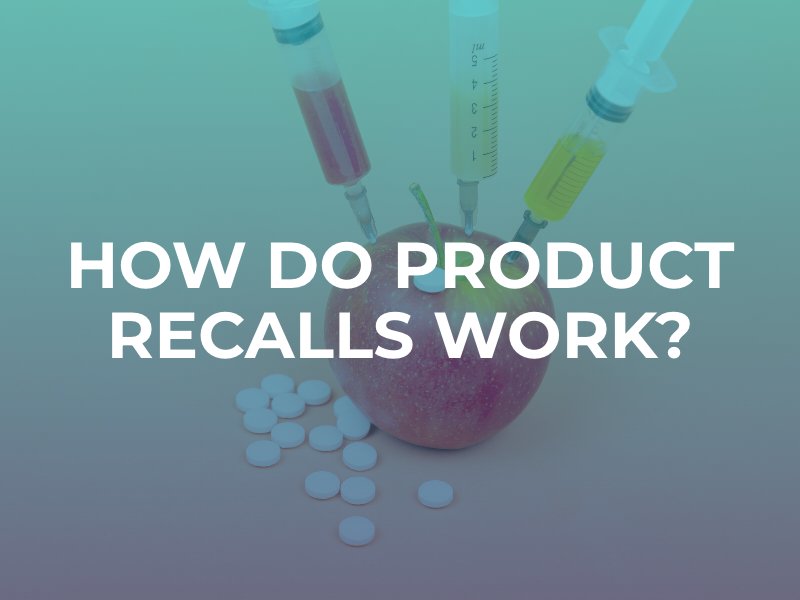How do Product Recalls Work?
Anytime it is discovered that a product is dangerous for consumers, it is likely that there will be a recall. This is particularly true if the issue that caused the defect is widespread. Here, we want to examine how product recalls work as well as what you can do if you discover that a product inside of your household or business has been recalled.

What Happens to Cause a Recall?
When we examine the government website that keeps track of current recalls, we can see that just about any product we use or consume on a regular basis could become defective. This includes vehicles, boats, cosmetics, cleaning supplies, medicines, foods and beverages, appliances, toys, and more.
You have probably seen recalls issued before. Bigger recalls often make the news, and you may have received a recall notice in the mail about an item you have purchased.
The vast majority of product recalls begin after a consumer files a complaint, usually after they have sustained harm as a result of the product. Complaints could get filed with a number of agencies, including the Consumer Product Safety Commission (CPSC), Food and Drug Administration (FDA), National Highway Traffic Safety Administration (NHTSA), and others.
If these agencies receive a significant number of credible complaints about a particular product, this will increase the chance that a recall occurs.
In addition to consumer complaints, a recall could also start if a government agency notices a problem and informs another government agency. For example, state inspectors at food manufacturing plants could uncover a problem and report this to the United States Department of Agriculture (USDA).
How a Recall Actually Happens
Before a recall actually occurs, the appropriate agency related to the particular product will begin an investigation. This could include an inspection of the product that initiated the complaint as well as other products in the same shipment or lot where the defective product came from.
Agencies could put products through multiple rounds of testing. Different government agencies have specific procedures in place to determine when to issue a recall, and they have different levels of recalls.
For example, the FDA will recall products that are found to be harmful or not in compliance with FDA rules and regulations. They use a three-tier system to determine the seriousness of the issue:
- Class 1 – This means that a product has a reasonable likelihood of causing serious health effects or even death to consumers.
- Class 2 – This means that the product could cause temporary harm or harm that is reversible through medical treatment, and the product likely only poses a remote chance of causing serious injury or death.
- Class 3 – This means that a product is unlikely to cause harm to a consumer but violates certain FDA rules or regulations.
Other government agencies use similar tiering methods to determine the severity of a recall. If the agency investigating the product determines that a recall is warranted, it will notify the manufacturer of this result. The product manufacturer can voluntarily elect to recall the defective product, and this is usually in their best interest to avoid further harm to consumers.
If a manufacturer refuses to issue a recall, the investigative agency could take further action. This can include the right to seize dangerous products or to issue a mandatory recall of the product. Some agencies may need to file a lawsuit against the manufacturer to get a court order to enforce the recall. Contact our Atlanta defective product lawyers with any questions.